What size Generator do i need to power my house..?
3rd Jan 2023
When it comes to generators, we commonly get asked the following question - What size generator do I need for my house?
Before buying a generator, there is one question you must ask yourself: Do I need the generator to power only the essential equipment or to power the entire house?
With a generator rated at 5,000 to 7,500 watts, you can run even the most critical household equipment, including things such as refrigerator, freezer, well pump, and lighting circuits. A 7500-running watt generator can run all these appliances at once. However, to know what size generator is needed to power a house, you should check the exact wattage of your home appliances to be 100% sure. They are commonly listed on their labels in watts or amps.
Well, if you live in a disaster-prone area where power outages are common, then you should get a larger generator. Despite its higher cost, it could be a great investment and give you peace of mind. However, if you plan to only run it a couple of times a year in case of an emergency, a smaller generator that runs the essential equipment will be the best choice.
Calculating the right size generator to power your house.
First of all, its easy to measure in watts . As a reference, consider that small camping generators offer anywhere between 1000 to 3000 watts, while bigger home back up generators are up around the 5000-7500 watts.
To find out what size generator is needed to power a house according to your needs, you must estimate your energy needs.
1. Choose the devices you want to run
List all essential appliances you have to run during an emergency power outage if you need a generator for your home; such as your AC, refrigerator, and lighting circuits.
2. Add up the total wattages
Pay attention to:
– Starting watts(amount of power needed by the appliance to start)
– Running watts(energy needed by the appliance to run after the initial startup)
3. Choose a generator slightly bigger than your needs
– You get a few hundred extra watts, so the generator won’t be running at full load
– Reduce noise (run at full load makes it noisy)
So, if your power requirements total 1600 running watts, get a generator that offers at least 1800 rated wattage, and get a generator with 7500 rated and 9500 starting watts if the total running wattage of your appliances is 6800 and starting wattage is 8200.
Power Management Tips
During power outages, the first priority is to provide sufficient light for the safety of your family. If power is out for several hours, you will want to power your refrigerator and freezer to ensure that no food spoilage occurs. Remember that it is not necessary to continually power these appliances if your generator has a small power output. Power management will allow you to utilize a small generator to power several appliances safely.
Portable generators over 1000 watts can be used to power microwave ovens, as well as toaster ovens and other electrical cooking devices, for meal preparation.
3000-4000 watt size generators are ideal for customers who want to have their household fridges and freezers running with lights / phone charging etc all at the same time.
Bigger 5000 -7000 watt sized generator models are great choices for homeowners with larger power requirements such as large household and bore water pumps, air conditioners / heating systems . These bigger models are well suited for use with a transfer switch to power priority circuits in your home. A qualified electrician should professionally install any home back up system utilizing a portable generator and manual or automatic transfer switch.
If you master the art of “power management” you will discover that a smaller portable generator can safely provide many of the conveniences you count on every day. And when the power comes back on, you will be able to take and use your generator camping, on the boat, as well as many other applications around the home.





